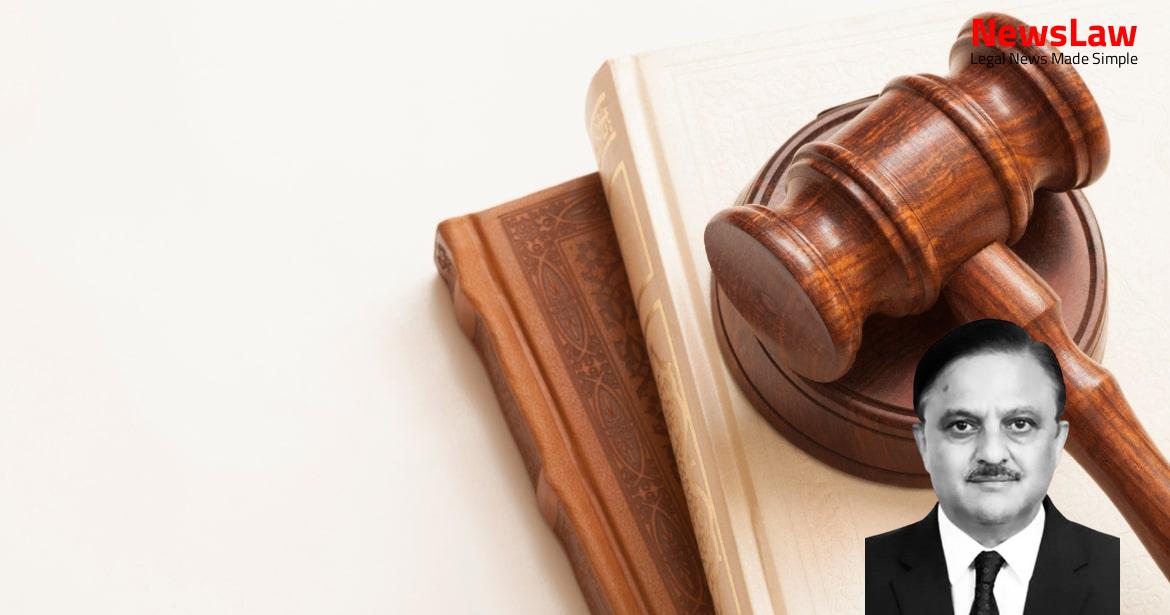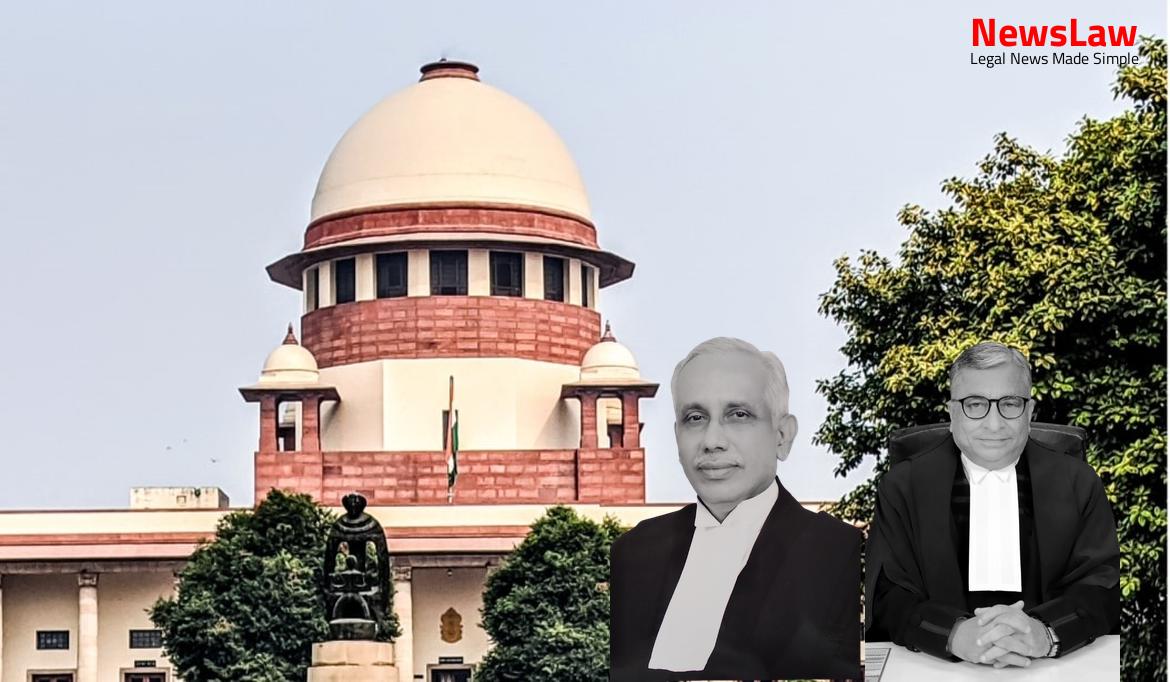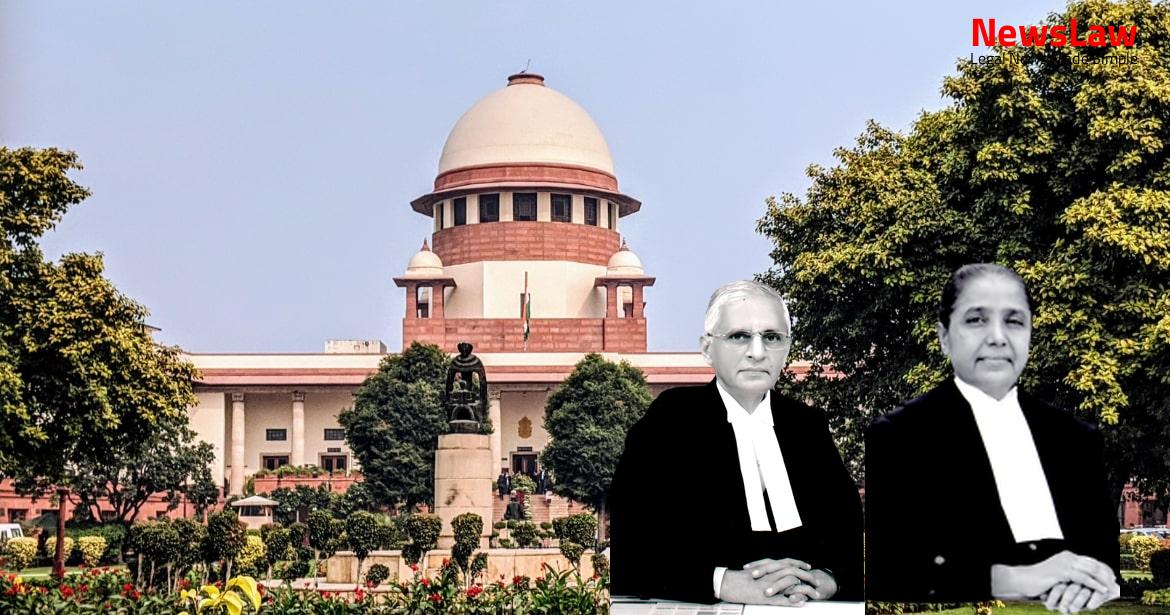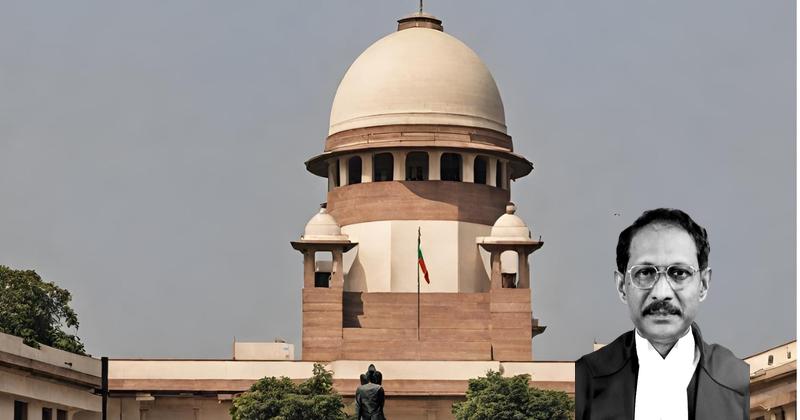In a recent landmark judgment, the Supreme Court of India addressed the issue of interim stay of bail orders in the case of Liberty vs. Judicial Discretion. This case highlights the importance of upholding legal rights, particularly the fundamental right to liberty under Article 21. Stay tuned to learn more about the implications of this judgment on judicial discretion and bail orders.
Facts
- The appellant filed two separate bail applications.
- The first application was for default bail under Section 167(2) of the CrPC.
- The second application was for regular bail under Section 439 of the CrPC.
- Multiple learned Single Judges recused themselves from the case.
- Various applications for bail, vacating stay, and cancellation of bail were listed on different dates from 2023 to 2024.
- The appellant was not initially shown as an accused in the Enforcement Case Information Report (ECIR).
- The Special Court granted regular bail to the appellant under Section 45(1)(ii) of the PMLA.
- The High Court orders included granting stay, vacating stay, and allowing the appellant to apply for interim bail.
- The case involved offences under the PMLA, IPC, and Prevention of Corruption Act.
- Investigations, arrests, and bail hearings took place over a period from 2020 to 2024.
- Several orders were passed directing the listing of the main application on specific dates.
- The appellant faced challenges due to recusals by Judges and adjournments of hearings.
- On 23 June 2023, a Vacation Judge directed the case to be listed before him on 26 June 2023 at 2.30 pm
- The Vacation Judge stayed the order granting bail, which had been in effect for 11 months
- The order to stay bail was passed without considering the merits of the case
- The High Court failed to address the urgency of hearing the application to vacate the stay
Also Read: Zaveri & Co. Pvt. Ltd. vs. ACIL: Legal Precedent on Guarantor Liability
Issue
- Concerns the power of the High Court or Sessions Court to grant an interim order of stay of operation of an order granting bail
- Specifically addresses the issue till the disposal of the application for cancellation of bail under sub-Section (2) of Section 439 of the CrPC
- Compares the provisions of Sub-Section (3) of Section 483 of the BNSS to sub-section (2) of Section 439 of the CrPC
Also Read: Legal Battle: Maharashtra Electricity Regulatory Commission vs. Steel Industry
Arguments
- Petitioner argues that the order granting bail was casually stayed by the High Court without examining the merits and without reasoning.
- He contends that such a cryptic interim stay order violates his Article 21 liberty.
- Counsel for the respondent has submitted a compilation of documents, pointing out instances where bail orders have been stayed by this Court without reasons.
Also Read: Supreme Court of India Judgment: Tarsem Lal v. Enforcement Directorate
Analysis
- Granting bail restores the liberty of the undertrial accused pending trial, subject to compliance with bail conditions.
- The power to grant interim stay of an order granting bail is crucial considering the curtailment of rights post-arrest.
- A change in circumstances, like the completion of an investigation, can justify a second bail application.
- Courts should exercise caution when granting interim relief such as stay of bail orders, especially without considering the merits of the case.
- The fundamental right to liberty under Article 21 of the Constitution must be upheld during legal proceedings.
- Ex-parte orders of stay on bail should be limited to rare and exceptional cases with strong grounds for cancellation of bail.
- The accused should have the opportunity to be heard promptly in matters concerning bail cancellations or stay orders.
- Cancellation of bail is warranted if the bail order is unjustified, illegal, or perverse, based on merit-driven grounds.
- The order passed by the Sessions Judge was in breach of the mandatory requirement of the proviso to Section 439(1) CrPC.
- The order was ignoring the material on record, unjustified, and perverse.
- The High Court has the power under Section 439(2) CrPC to set aside an unjustified, illegal, or perverse order granting bail.
- As per the decision in Puran v. Rambilas, the High Court can cancel bail if the order is wholly unjustified, patently illegal, or perverse.
- Besides breaching the terms and conditions of bail, if the accused misconducts himself, the High Court or Sessions Court can cancel the bail under Section 439(2) of CrPC.
- The judgment pointed out that the case of Puran v. Rambilas was specifically relied upon by the court
- The reasoning and interpretation of the law provided in Puran v. Rambilas was crucial in the decision-making process
- Certain principles or precedents from Puran v. Rambilas were used to support the arguments presented in the current case
- The power to grant an ex-parte interim stay of an order granting bail must be exercised in very rare and exceptional cases.
- The Court must record specific reasons for concluding that it is a rare and exceptional case warranting an ex-parte interim stay.
- The accused’s right to liberty under Article 21 of the Constitution should not be lightly interfered with by mechanically granting an ex-parte stay of the bail order.
- If an ex-parte stay is granted, the Court must immediately hear the accused on the continuation of the stay, after issuing a short notice.
- The High Court failed to hear the advocate representing the accused before granting the stay, which was not done in accordance with the standards required for such cases.
Decision
- Application for cancellation of bail was placed before the High Court on 23 June 2023.
- Case was listed before the roster bench on 3 July 2023.
- Ex-parte order of stay was granted without hearing the advocate for the accused or recording reasons, which vitiates the order.
- Order of stay dated 17 June 2023 by the Special Court will continue to operate until the hearing of the cancellation of bail application.
- Arguments were heard on the application on various dates from 14 July 2023 to 17 August 2023.
- Further arguments were scheduled but could not be heard on 28 August 2023, 5 September 2023, 4 October 2023, 16 October 2023, 19 October 2023, and 3 November 2023.
- Ex-parte stay of the order granting bail should not be a standard rule.
- All contentions on the merits of the bail cancellation application are left open for the High Court to decide.
- Order on 10 November 2023 stated that arguments were heard and judgment was reserved.
- Appeals were allowed on the above terms with the option to apply to vacate the interim stay.
Case Title: PARVINDER SINGH KHURANA Vs. DIRECTORATE OF ENFORCEMENT (2024 INSC 546)
Case Number: Crl.A. No.-003059-003062 – 2024



